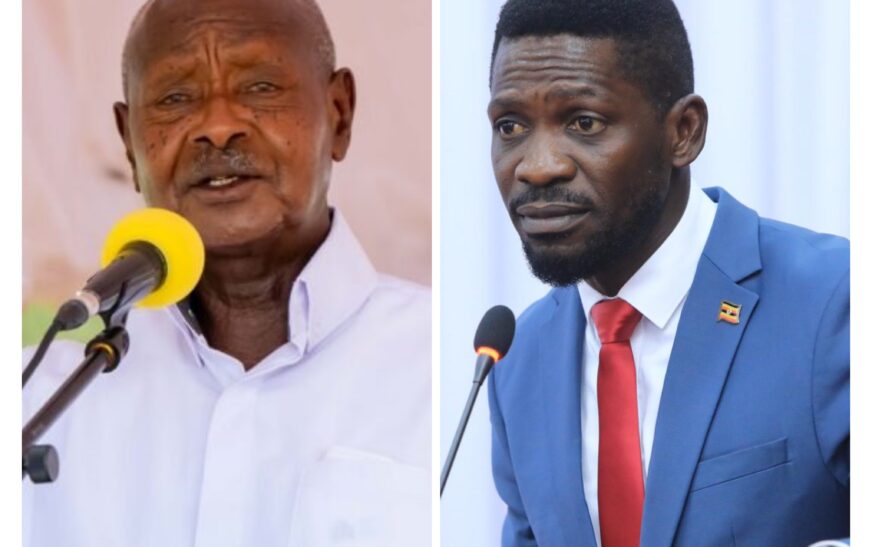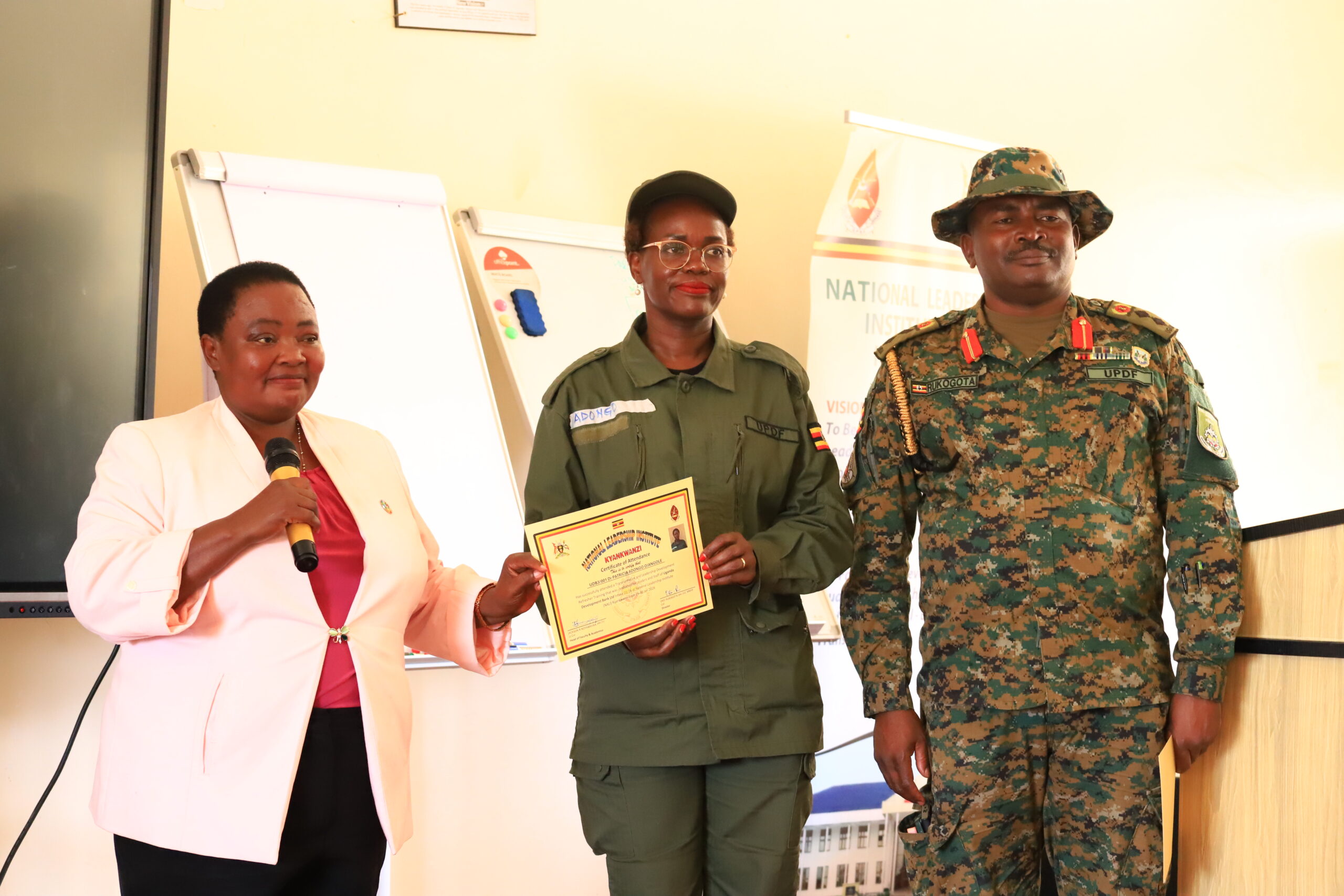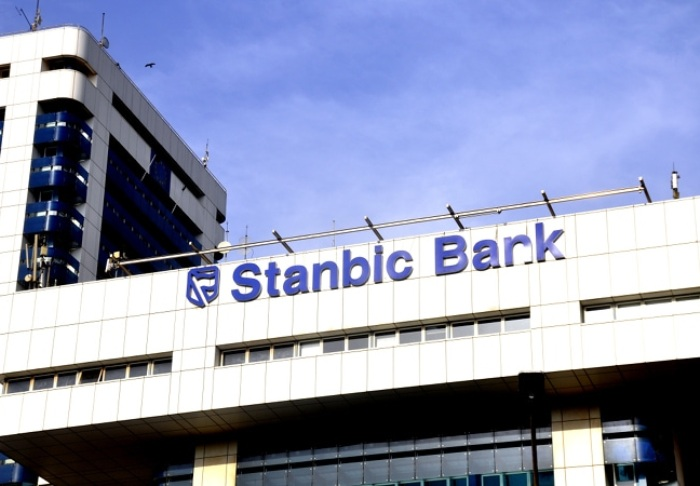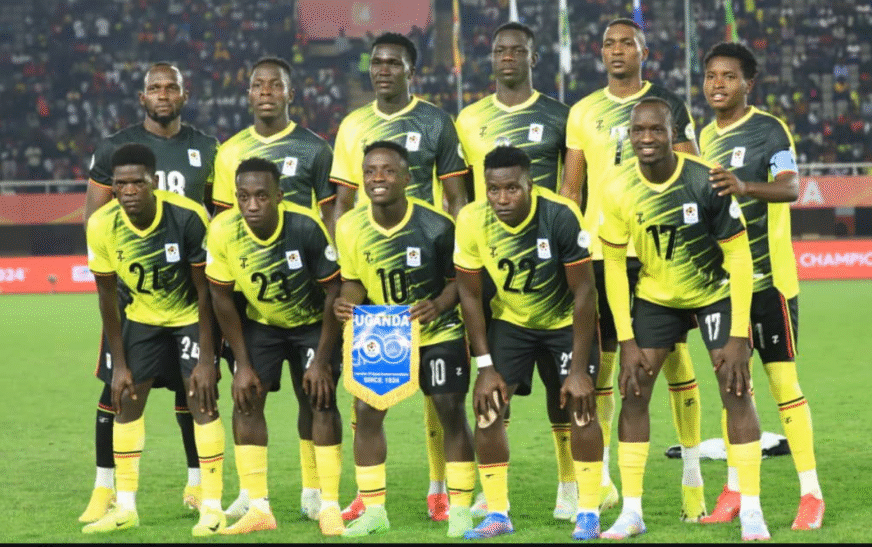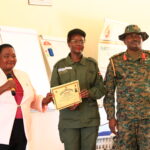The political atmosphere in Uganda is heating up as President Yoweri Museveni and National Unity Platform (NUP) leader Robert Kyagulanyi Ssentamu, popularly known as Bobi Wine, prepare to face off in the 2026 presidential elections.
Bobi Wine officially joined the race after picking up presidential nomination forms from the Electoral Commission. This move follows his endorsement as NUP’s presidential flag bearer during a delegates’ conference held in June at the party’s training institute in Kamwokya.
The nomination forms were collected on his behalf by a delegation of top NUP officials, including Secretary General David Lewis Rubongoya, Leader of the Opposition in Parliament Joel Ssenyonyi, and other party leaders.
Meanwhile, the ruling National Resistance Movement (NRM) has confirmed President Museveni as its candidate. Museveni, who has been in power for 40 years, is seeking a seventh term in office.
His nomination forms were collected last week by NRM Secretary General Richard Todwong and the party’s First National Vice Chairman, Moses Kigongo.
According to Todwong, Museveni’s candidacy is not a personal ambition but a party decision.
“He was nominated unopposed within the party. As for those who are claiming otherwise, I don’t know who they are or where they are. The party unanimously endorsed him, based on all the resolutions I’ve received in my office,” Todwong stated.
Museveni now joins a list of over 160 presidential aspirants who have picked nomination forms. Several candidates from other political parties, including the Forum for Democratic Change (FDC), have also declared their interest in the upcoming general elections.
With the 2026 polls drawing closer, the showdown between Museveni and Bobi Wine is expected to dominate Uganda’s political discourse, raising questions about leadership, democracy, and the future direction of the country.
On Thursday, January 14, 2021, the Electoral Commission conducted presidential elections in which Ugandans exercised their constitutional right to choose a leader for the next five-year term.
Uganda had a total of 18,103,603 registered voters across 34,684 polling stations, but only 10,350,819 voters turned out to cast their ballots—representing a voter turnout of approximately 57.2%.
The election featured 11 presidential candidates, with incumbent President Yoweri Kaguta Tibuhaburwa Museveni securing victory with 6,042,898 votes, representing 58.38% of the total valid votes cast. His closest challenger, Robert Kyagulanyi Ssentamu (also known as Bobi Wine), received 3,631,437 votes, accounting for 35.08%.
President Museveni’s win extended his leadership, which began in 1986, further entrenching his position as one of Africa’s longest-serving leaders.

